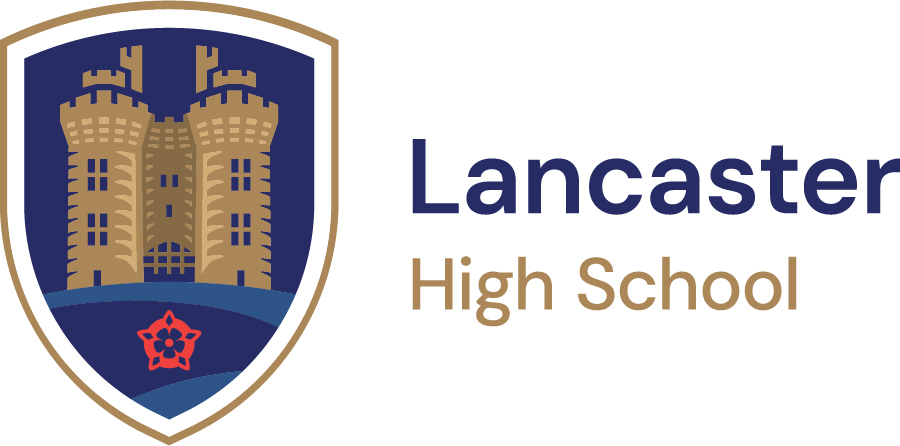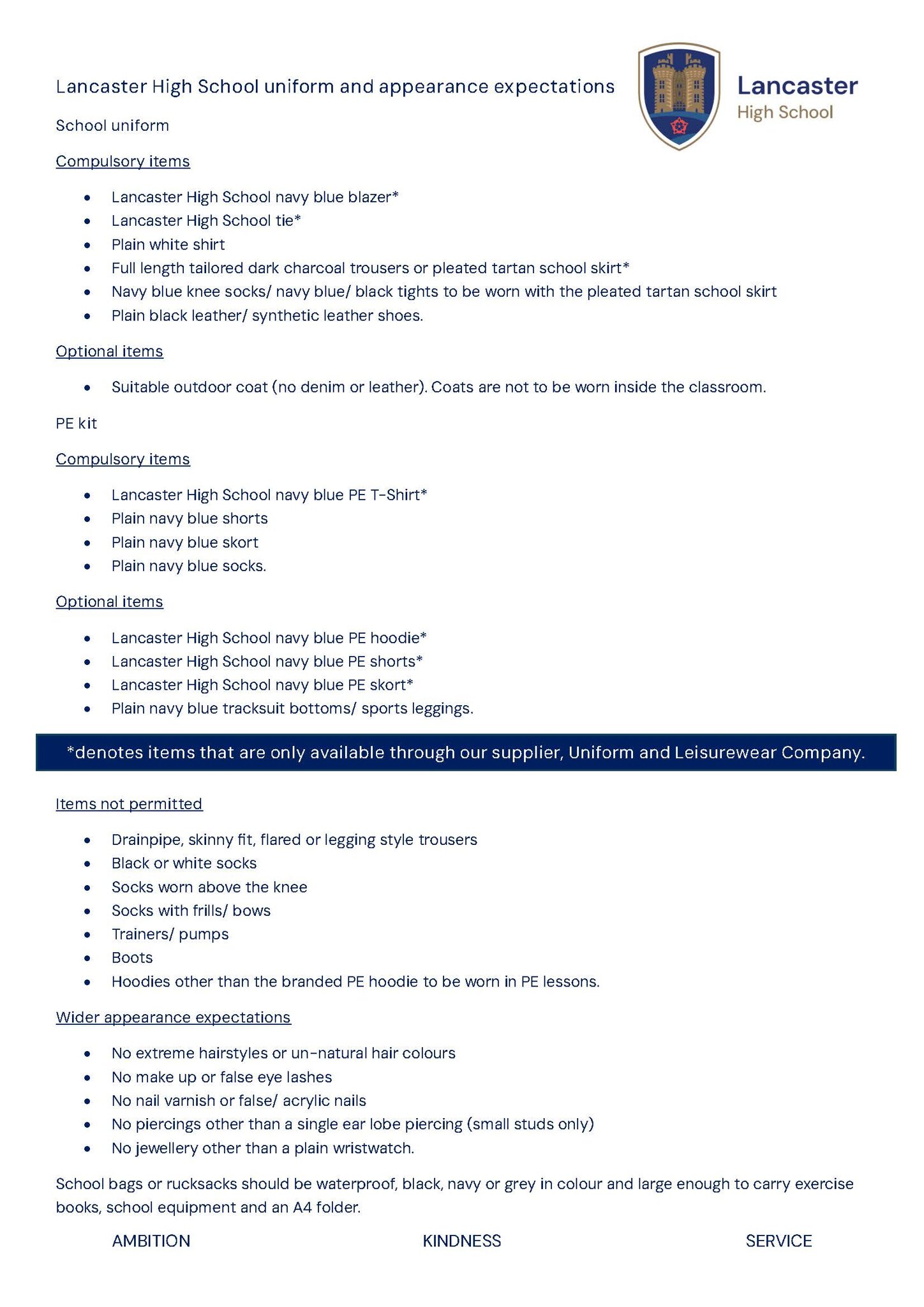Subject Staff
|
Name |
Role |
Contact |
|
Mrs R Pearson |
Subject Lead for RE/ PSHE |
Our Intent:
Religious Education
In RE at Lancaster High School we are committed to instilling a respect for beliefs and practices within different faiths as well as a love of the debate that takes place when studying different ideas to one’s own. Our inquiry-based curriculum aims to broaden our student’s world view by introducing them to the exploration of religion and helping them to recognise the contribution spirituality plays in many people’s lives within our local, national and global community. By doing this, we enable them to critically reflect on their own attitudes and address myths, misconceptions and stereotypes along the way. Over the duration of their religious education at CLHS students will focus on key skill areas;
Knowledge and understanding of religious belief and practices as well as the influence this has over an individual’s actions and attitudes.
Evaluation of religious beliefs and practices leading to a reflective, well-considered, reasoned conclusion of personal opinion and analysis of religious teachings, texts and sources of authority.
These cross-curricular skills will be the basis of their religious education from KS3 through to KS4. In Year 7 students study Christianity and Islam as these religions represent the two largest faiths found in our local community. Students will cover viewpoints from the six main religions as well as viewpoints from smaller religions and nonreligious groups.
During Year 8 & 9, pupils begin to use build on their knowledge and understanding of religious belief in thematic studies. This gives students the opportunity to explore the other major world faiths by applying beliefs and practices to moral issues such as The Problem of Evil and Suffering, Crime and Punishment and Family and Relationships.
KS3 overview of RE units
|
|
Term 1 Topics |
Term 2 Topics |
Term 3 Topics |
Curriculum Roadmaps |
|
Year 7 |
Christianity: Beliefs and practices |
Islam: Beliefs and practices
|
Judaism: Beliefs and practices
|
View Document |
|
Year 8 |
Beliefs and Practices: Buddhism |
Beliefs and Practices: Religious Attitudes to Evil and Suffering |
Beliefs and Practices: |
View Document |
|
Year 9 |
Thematic Studies: |
Thematic Studies: |
Thematic Studies: |
View Document |
Parents / carers can best support pupils by: Regularly talking about current events relating to faith, belief, moral issues and religion. Stories like this are always in the news and striking up a conversation with your child can be a great way to help them develop their ability to express their views and reflect on contrasting views to their own.
GCSE Religious Studies
Qualification type, exam board and syllabus if applicable: GCSE Religious Studies, AQA Specification A
Link to specification: AQA | GCSE | Religious Studies A | Specification at a glance
|
|
Half Term 1 |
Half Term 2 | Half Term 3 | Half Term 4 | Half Term 5 | Half Term 6 |
| Year 10 |
Christianity: beliefs and practices |
Christianity: beliefs and practices |
Christianity: beliefs and practices |
Islam: beliefs and practices |
Islam: beliefs and practices
|
Islam: beliefs and practices
|
| Year 11 |
Thematic study: Religion and life issues |
Thematic study: Relationships and families |
Thematic study: Religion, crime and punishment |
Thematic study: Religion, human rights and social justice |
Revision
|
|
Assessment
Both exam papers have a common structure of questions of 1,2,4,5 and 12 marks. There are marks for spelling, punctuation and grammar (SPaG) in each 12 mark question.
|
Paper 1 |
The study of religions: beliefs, teachings and practices (Christianity and Islam) |
1 hour 45 minutes 96 marks plus 6 SPaG Each religion is marked out of 48. |
50% of GCSE |
|
Paper 2 |
Thematic Studies
|
1 hour 45 minutes 96 marks plus 6 SPaG Each theme is marked out of 24. |
50% of GCSE |
Additional resources to support revision:
Each student will be provided with a revision workbook in the lead up to exams and will be supported in the creation of revision materials before end of unit assessments. Further revision materials available:
|
Resource |
Link |
|
GCSE Pod (login available from teacher) |
|
|
BBC Bitesize |
Christianity - GCSE Religious Studies Revision - AQA - BBC Bitesize (Paper 1 revision) Islam - GCSE Religious Studies Revision - AQA - BBC Bitesize (Paper 1 revision) |
|
Revision workbook for Paper 1: Christianity and Islam |
|
|
Revision workbook for Paper 2: Thematic studies (using Christianity and Islam) |
|
|
Revision guide for entire specification |


